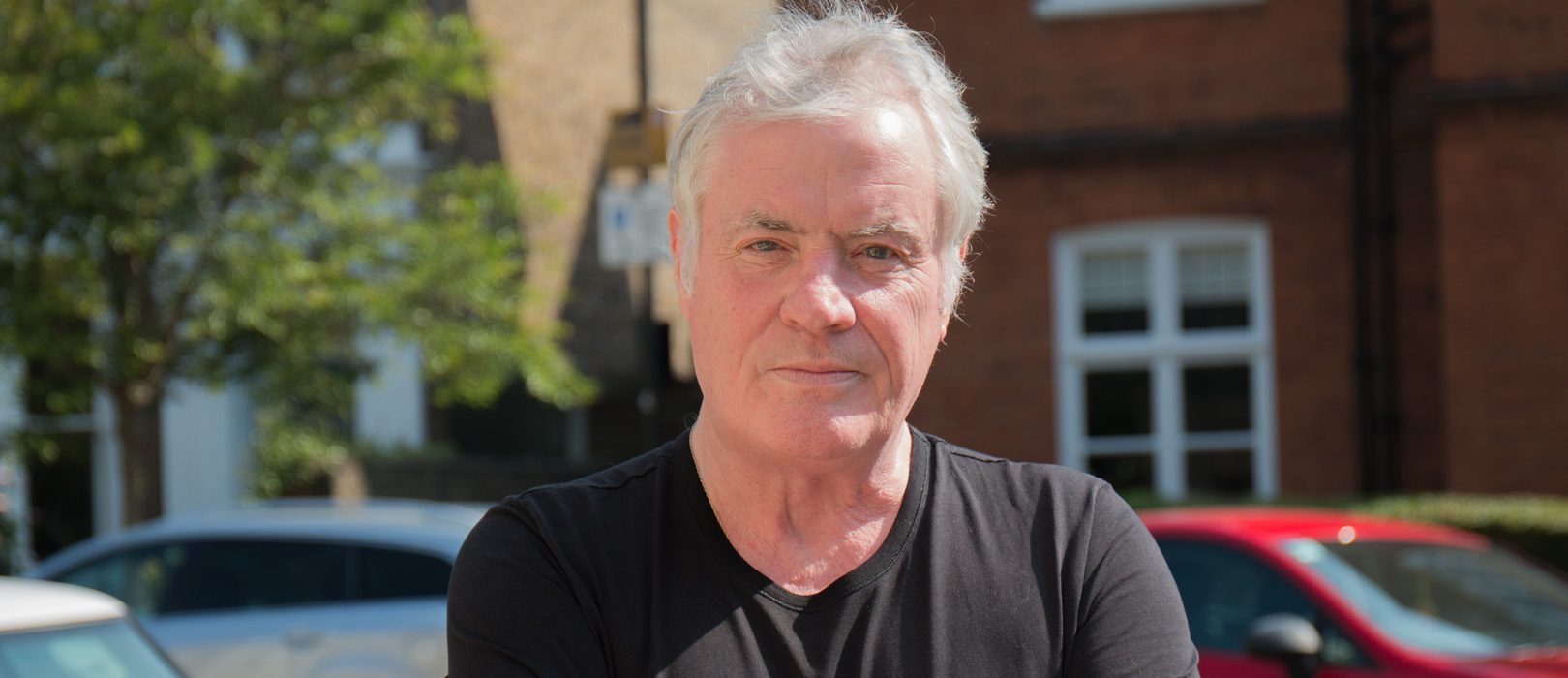
“I was determined to take charge of my own recovery”
After leaving the Army Don Simpson knew he had a problem with mental health, however, he struggled to find appropriate support. He explains how he eventually found help and why he was determined to take control of his recovery.
Don joined the Army in 1976 and served in the Royal Engineers for 10 years, spending time in Northern Ireland, Germany and the Falklands (post-war).
After six months in the Falklands, he handed in his notice, leaving the forces in January 1986.
“I felt like a square peg in a round hole,” explains Don.
“My problems began in Northern Ireland. I knew I had problems practically immediately but I didn’t have a clue what was happening. I didn’t know what PTSD was.
“My whole construct had changed and it baffled me. I was in conflict with myself and I felt I was different to everyone else around me.”
Transitioning to civilian life
Don struggled to adapt to life outside the Forces but was helped by his wife.
“My wife was amazingly supportive,” says Don.
“She was the one who made the transition to civilian life. It was her who made the family change. My son was nearly four years old and my daughter was nearly two, and my wife was the driving force behind us making that transition.
“It certainly wasn’t me – I wasn’t capable.”
During this time Don sought help from his GP.
“There was still something wrong and it was nagging me,” he explains. “I would wake up at 2am terrified, sweating, and think ‘here we go, make sure you go into work’, but as 6am approached it just got bigger and darker and blacker.
“I was very fortunate to have a sympathetic line manager because I would be off work for two to four weeks at a time.
“I would go to the doctor, who was a great guy, but eventually he said ‘I can’t help you, you need specialist help’.”
Discovering Combat Stress
Eventually Don’s manager referred him to an occupational health worker.
“I knew I could lose my job and I dreaded to think what would happen after that,” says Don.
“I offloaded everything on the health worker. She got a card from her folder and said ‘I’ve been given this card, can you give them a ring and see if they can help you, and if they can’t can you get back to me’.”
The card was for Combat Stress and after booking himself in for an assessment, Don met a number of fellow veterans at the charity who had experienced similar problems.
“That was a massive weight lifted off me because my condition was recognisable,” says Don.
“That helped my recovery before I’d seen any specialists. It was an incredible thing. It gave me the emphasis to absorb the therapy and pay attention to what they were trying to tell me.
“After I completed a PTSD intensive treatment program I was kind of scared that I would tail off into the distance with what I was taught so I was determined to take charge of my own recovery and keep reminding myself of the strategies.
“I took two or three things away with me, particularly breathing exercises which I still do now. Any time that there is any sort of conflict it’s sort of second nature.”
A first point of contact
With many in the Armed Forces community unsure of the help available to them, Veterans’ Gateway acts as a first point of contact for whatever support people need, including mental wellbeing.
This includes a support team who can be contacted by phone or email, as well as a range of self help guides.
“Veterans’ Gateway is a fantastic idea,” says Don.
“People in every surgery should be aware of it.”

